Content from the Brookings Doha Center is now archived. In September 2021, after 14 years of impactful partnership, Brookings and the Brookings Doha Center announced that they were ending their affiliation. The Brookings Doha Center is now the Middle East Council on Global Affairs, a separate public policy institution based in Qatar.
On June 5, 2017, the United Arab Emirates (UAE), Saudi Arabia, Egypt, and Bahrain severed their ties with Qatar, beginning a blockade that has had regional and international ramifications. On the first anniversary of the crisis, Brookings experts published this post. On the second anniversary, they reflect on the various dimensions of the crisis as it continues unresolved.
Omar Rahman—Visiting Fellow, Brookings Doha Center: For a region already lacking in effective cooperative institutions, the blockade of Qatar has been especially pernicious. For two years the Gulf Cooperation Council (GCC) has ceased to function as a unified body—at least on a political level. The rift has filtered down to the popular level, as publics have rallied around the decisions of their leaders. But the Gulf rift has also not been contained institutionally in the GCC, rather it has spread outward to the Arab League and the Organization of Petroleum Exporting Countries (OPEC), which Qatar exited last year.
While neither of these institutions were paragons of effectiveness, the Gulf rift has hobbled them further still at a time of substantial turmoil in the region, and heightened security concerns in the Persian Gulf in particular, as the risk of war with Iran becomes more acute. The demands of the region require further unity and institution-building rather than fragmentation and divisive politics.
Noha Aboueldahab—Fellow in the Foreign Policy program at Brookings and at the Brookings Doha Center: Tensions among the Gulf countries continue to reverberate regionally. These tensions have already added to the uncertainty of the Sudanese transition and could extend to the Algerian transition as well. They have also complicated a resolution to the conflicts in Libya and Yemen. The Gulf crisis, now in its third year, remains one part of a larger picture involving a tense history that pre-dates the June 2017 blockade of Qatar. These unresolved, long-standing differences between the quartet and Qatar have intensified the counterrevolutionary aspirations of powerful actors such as Saudi Arabia, the UAE, and Egypt.
Consequently, the alarming surge in domestic repression now transcends borders through intensified transnational surveillance and intimidation. The practice of detention, torture and murder of dissidents, journalists, and other professionals from across the political spectrum, including prominent Saudi journalist Jamal Khashoggi, exemplifies the repercussions of heightened regional tensions, the Gulf crisis included.
Almost a decade since the Arab uprisings, local struggles against various oppressive forces persist. With the benefit of hindsight, protesters in Algeria and Sudan have a hefty task ahead of them: ridding themselves of the state apparatus that oppressed them for decades while ensuring that external crises – including that of the GCC – do not hijack their demands for freedom and social justice.
Zach Vertin—Nonresident fellow in the Brookings Foreign Policy program and visiting fellow at the Brookings Doha Center: Since 2017, the Gulf crisis has been exported to the Horn of Africa, where Gulf states and Turkey have sought to shore up access and influence. While new engagement in the Horn brings potential opportunities for political and economic integration astride the Red Sea, it also poses risks, especially in light of the militarization of external security dynamics.
The manifestation of the Gulf rivalry has had tangible impacts in Somalia, Djibouti, Ethiopia, Eritrea, and most recently, in Sudan. The regime of former Sudanese president, Omar Bashir, had previously sought to balance relations with both sides of the dispute, cooperating with the Saudi/UAE coalition in Yemen while at the same time developing new partnerships with both Qatar and Turkey. But his April 2019 ouster has left a political vacuum in Khartoum. While support and resources from the Gulf and Turkey will be essential in ensuring a political transition in Sudan succeeds, it is critical that foreign agendas not replace the popular demands of the street and their long-suppressed aspirations for democratic reform.
Ali Fathollah-Nejad—Visiting Fellow, Brookings Doha Center: Escalating tensions between Iran and the United States in May 2019, preceding the second anniversary of the blockade against Qatar, are a forceful reminder of the delicate balance in which the state finds itself, amid a seemingly perennially volatile geopolitics of the wider Persian Gulf region. Within the context of Iranian–American enmity, Doha’s position is indeed extraordinarily unique – or uniquely paradoxical in the current geopolitical circumstances – as it entertains good relations with both countries. On one hand, while sharing the world’s largest gas field with Iran, the blockade has produced what it hoped to avert, i.e. deepening Qatari–Iranian relations. On the other, Qatar is home to the largest U.S. military base in the region – also a guarantor against any invasion by the Saudi–Emirati axis or any potential Iranian usurpation.
Qatar finds itself in the eye of the hurricane, and yet this tenuous position could allow it to act as a mediator in quelling U.S.-Iran hostilities. While Qatar cannot insulate itself from this regional divide, it may be able to play an active role in mitigating it.
Yasmina Abouzzohour—Visiting Fellow, Brookings Doha Center: Two years into the Gulf crisis, Morocco’s official stance remains one of neutrality. Despite the country’s insistence that relations are strong with both sides, tensions seem to be rising between Morocco and the Saudi-Emirati bloc.
Several events demonstrate this chilling of relations: Morocco withdrew military support for the Saudi-led coalition in Yemen; King Mohammed VI did not meet with Crown Prince Mohammed bin Salman during his post-Khashoggi tour of the region; and various sources claimed that Morocco’s ambassador to Saudi Arabia was temporarily recalled. On the other side, Saudi Arabia did not support Morocco’s bid to host the 2026 World Cup; King Salman cancelled his annual trip to Tangiers; Saudi television aired a documentary questioning Morocco’s sovereignty over Western Sahara; and the UAE recalled its ambassador from Morocco recently.
Morocco has maintained strong diplomatic relations with Qatar throughout this period, and both states are looking to increase their economic and political cooperation. Along with Iran and Turkey, Morocco sent supplies to Qatar after the blockade. Unlike the Saudi alliance, Qatar supported Morocco’s bid to host the World Cup and has never questioned its sovereignty over Western Sahara. Going forward, Morocco will continue trying to maintain good relations with both sides of the Gulf crisis. However, the North African kingdom has made it clear that it will not jeopardize its relationship with Qatar to appease the Saudi-Emirati bloc.
Nader Kabbani—Director of Research, Brookings Doha Center: As the Gulf crisis enters its third year, three things are clear. First, Qatar has so far been able to successfully weather the boycott, both politically and economically. It has demonstrated that it can survive and thrive on its own. Qatar’s economic growth over the 2018-2019 period is projected to be a robust 2.4 percent, the highest in the GCC. Second, there is no indication that the UAE or Saudi Arabia, the two countries leading the blockade, will seek a reconciliation anytime soon. Both countries continue to pursue an interventionist foreign policy in Yemen, Libya, Sudan, and other countries of the region.
Within this context, they will continue to oppose Qatar’s independent-minded foreign policy and to pressure their neighbor to accept their aspirations for regional hegemony. Third, even though Qatar and its neighbors can continue to thrive, the blockade has disrupted trade, investment flows, and travel between the countries. Furthermore, it has signaled economic and political instability to the rest of the world. According to a recent IMF study, foreign direct investment in the region in 2017 was the lowest in over a decade. While Qatar and its neighbors are prepared to endure a prolonged standoff, eventually they will have to reconcile. The sooner the Gulf crisis ends the better it will be for all.
Ranj Alaaldin—Visiting Fellow, Brookings Doha Center: The Gulf crisis exemplifies the resiliency and capacity of small states in the face of hostile exogenous forces. Two years since the crisis unfolded, Qatar remains a geostrategic actor and an economic force, regionally and internationally. When the crisis unfolded, Qatar was effectively firewalled by Turkey, which has since become its most important ally in the region after Ankara’s intervention essentially forestalled a potential military intervention by the blockading countries. Like Turkey, Iran has also become more closely aligned with Qatar and emerged as an important alternative trading partner for Qatar’s day-to-day needs. In the space of just weeks, the crisis became an opportunity for Qatari power projection, which has enabled an expanded and arguably more effective soft power across the globe, even mobilizing a stronger sense of nationalism and identity domestically.
But the trust test of Qatar’s foreign relations and geopolitical relations is yet to come. The Gulf crisis is a symptom of uncertainty, agitation, and adventurism in a regional order that is still being defined, one that continues to be politically and violently contested. Qatar has positioned itself as a neutral actor in conflict and tensions between the United States and Iran, for example, and its officials champion a consensus-based regional security architecture. But Qatar’s post-Gulf crisis alignments could undermine this policy and narrative and make it difficult for Qatar to maintain its healthy balancing strategy.
Galip Dalay—Nonresident Fellow, Brookings Doha Center: On its second anniversary, the Gulf crisis is as far away from a solution as it was when tensions first broke out. During this period, Turkey has maintained the general contour of its policy. It didn’t see this crisis as a bilateral issue between Qatar and its Gulf Arab neighbors. Rather it situated this dispute within a certain temporal and geographic spectrum. It regarded the conflict as an outgrowth of the Arab Spring era contestations and as a manifestation of the search for a new regional order in the Middle East.
Given Turkey and Qatar’s similar positions on the Arab Spring and political Islam, Turkey believed that any regional order pursued by the anti-Qatari bloc would have inevitably included an anti-Turkish alignment as well. The 13 point list of demands that the blockading countries presented to Qatar, in which they asked Doha to close down the Turkish military base, further confirmed Turkey’s assessment. Moreover, recent rhetoric used by UAE officials, in which they rebuke the non-Arab states’ “meddling” in Arab affairs, further validated Turkey’s concerns.
Adel Abdel Ghafar—Fellow in the Foreign Policy program at Brookings and at the Brookings Doha Center: An unfortunate byproduct of the Gulf crisis has been the degradation of relations at a people to people level. Online, social media has become an arena to exchange profanities and insults, whether by citizens themselves, or by armies of bots engaged in information warfare. Offline, relations have been frayed too. In a region where tribal ties transcend national borders, the blockade has divided families and caused tensions amongst others. Sports, rather than bringing people together, has been weaponized. The Hajj pilgrimage, a powerful symbol of unity for Muslims, has been politicized.
Overall, the illusion of the unified GCC family has been shattered. Linguistic, familial, religious, and cultural ties were at the heart of the social fabric of the region. Even if the crisis is resolved at a leadership level, it is likely that its consequences will continue to be felt at a population level with lingering animosities for decades to come.
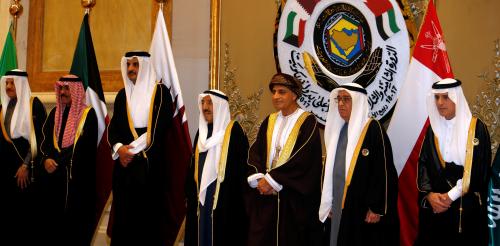
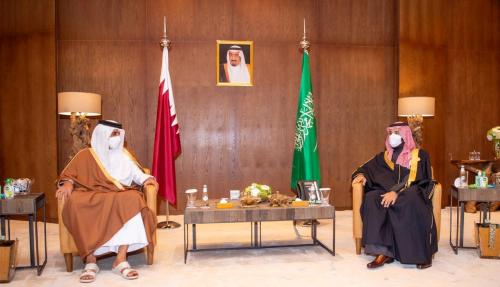
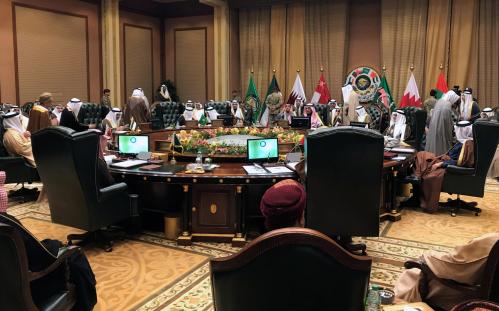


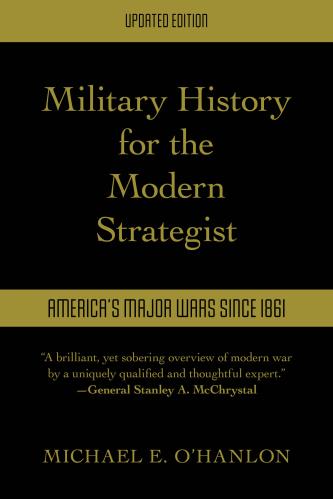
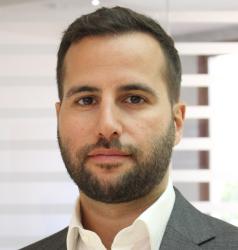
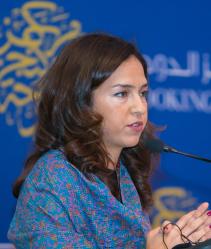




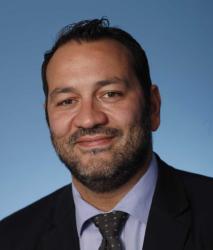




Commentary
Op-edWhat Brookings experts are saying about the two-year anniversary of the Gulf crisis
June 3, 2019